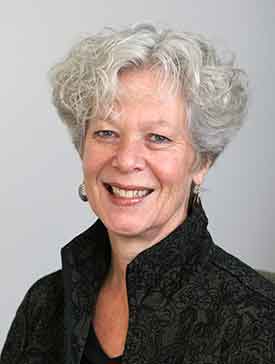Lilly Endowment Inc. has awarded a $7.75-million grant to Wabash College to continue the programs of the Wabash Center for Teaching and Learning in Theology and Religion.
“All of us at Wabash College are exceedingly grateful for the Endowment’s ongoing support of the Wabash Center for Teaching and Learning in Theology and Religion,” said Wabash President Gregory D. Hess. “At its core, the Wabash Center works to help faculty in religion and theology become more effective teachers. In this way, it has been instrumental in strengthening the teaching skills of a new generation of teachers of religion and theology whose students will serve as ethical and moral leaders in their professions and their communities. The College is proud of the accomplishments of the Wabash Center and grateful for the Endowment’s gift that sustains it.”
Begun in 1996, the Wabash Center’s mission is to strengthen the quality of teaching and learning in the fields of theology and religion in North American theological schools, colleges and universities. Through teaching workshops for faculty, consultations with religion departments and theological schools, the production of teaching resources, and grant awards for teaching and learning, the Center offers opportunities for teachers of religion and theology to assess their teaching practices and to improve their classroom skills. These efforts also enhance student learning as faculty members make stronger connections between their teaching strategies and their students’ experiences.
“The Wabash Center’s programs have raised the standards of excellence in teaching in the field of religion and theology,” said Christopher Coble, vice president for religion at the Endowment. “These programs have been especially effective in helping faculty members attend more closely to the interests, questions and backgrounds of their students and to adjust their classroom practices to improve student learning. With this grant, the Center will continue to play a key role in the Endowment’s efforts to improve the quality of preparation of students who will become leaders of religious communities.”
Since its founding, the Wabash Center has been supported by grants from the Endowment totaling more than $48 million. This grant enables the Center to continue its programs through 2018.
 “The funding Lilly gives us is important within the field of religion and theology and allows us to help faculty members focus specifically on tasks of teaching and learning,” said Nadine S. Pence, director of the Wabash Center. “Theology and religion are important disciplines for understanding the world around us, and this support helps us actively engage with emerging faculty members to strengthen their teaching skills and to enhance their interactions with their students.”
“The funding Lilly gives us is important within the field of religion and theology and allows us to help faculty members focus specifically on tasks of teaching and learning,” said Nadine S. Pence, director of the Wabash Center. “Theology and religion are important disciplines for understanding the world around us, and this support helps us actively engage with emerging faculty members to strengthen their teaching skills and to enhance their interactions with their students.”
More than 1,100 faculty members from across the United States and Canada have participated in Wabash’s teaching workshops, and the Center has worked with more than 280 theological schools and religion departments to help them enhance their teaching and learning practices.
The Wabash Center’s most popular program is its teaching workshops. The Center holds eight to 10 workshops each summer on the Wabash campus that are open to faculty members in theology or religion. Most participants are pre-tenure or at the mid-point of their teaching careers. The workshops are by application and are limited to 14 participants each.
One mark of the Center’s success is that more than 100 former Wabash Center participants have gone on to serve as deans of theological schools and chairs in religion departments. “The Center’s programs have served as a leadership incubator,” noted Coble. “It has prepared many faculty members for leadership roles in higher education and helped them promote and support excellent teaching in their institutions.”
For educators committed to growth and development, the Wabash Center also provides other resources to support teaching and learning. These include Teaching Theology & Religion, a quarterly peer-reviewed journal, and Teaching Links, a monthly e-newsletter; consultants to lead workshops, retreats, or faculty conversations on teaching; and grants to assist particular theological schools and religion departments in assessing and enhancing their teaching methods and practices.
“A very important shift happens when a faculty member moves from seeing herself as being a research scholar to being a teacher, especially within religion and the humanities,” said Pence. “We give faculty the space to reflect on their vocational goals or callings, to explore the craft of teaching, and to think about the effectiveness of their teaching practices within their institutional context. It is fulfilling to see faculty sort out those types of questions and to give teachers the ability to find and strengthen their support networks as they discover their teaching vocation.”
In addition to the teaching workshops, colloquia and conferences, the Wabash Center has made more than 1,200 grants to institutions and individual faculty members totaling more than $13 million. These funds have promoted the advancement of teaching and learning in religion and resulted in a new field of research and writing that now includes more than 500 published articles.